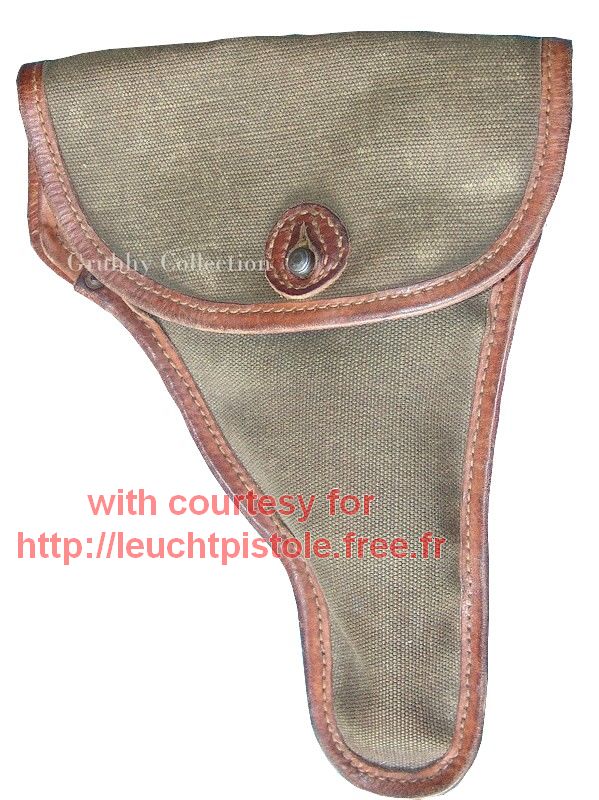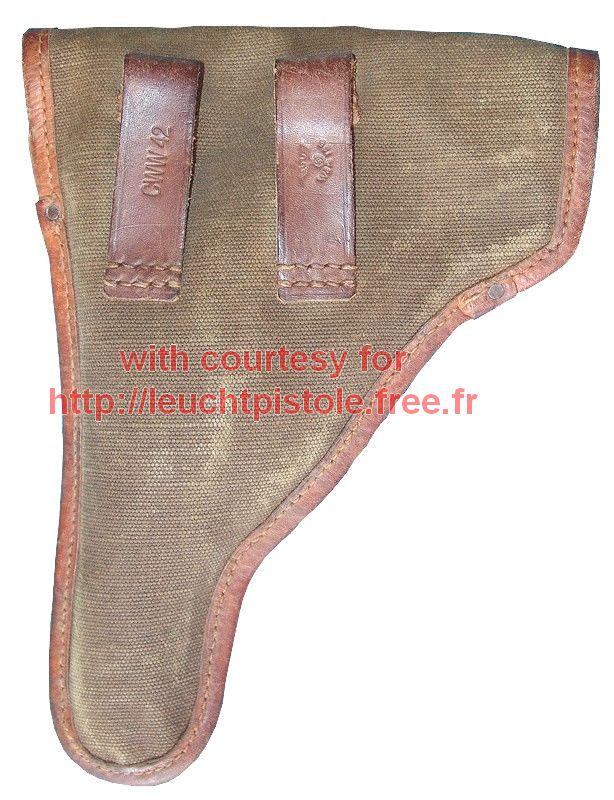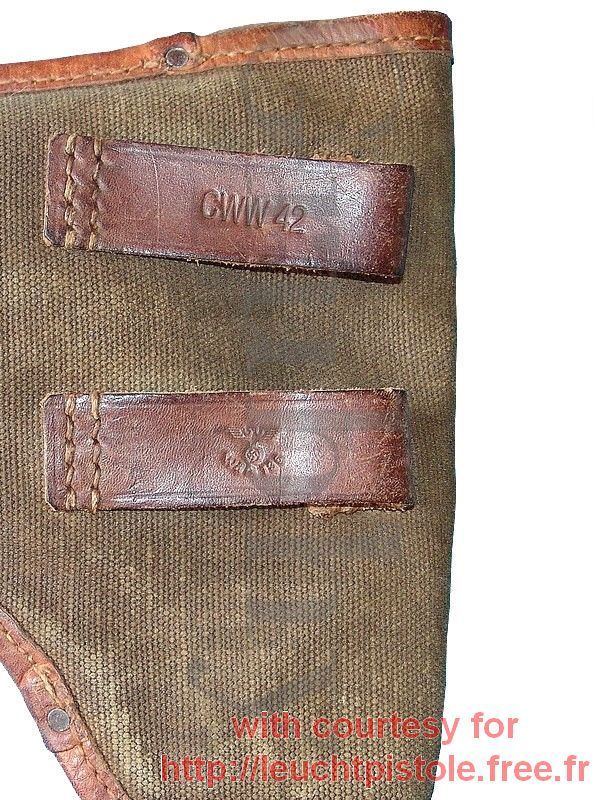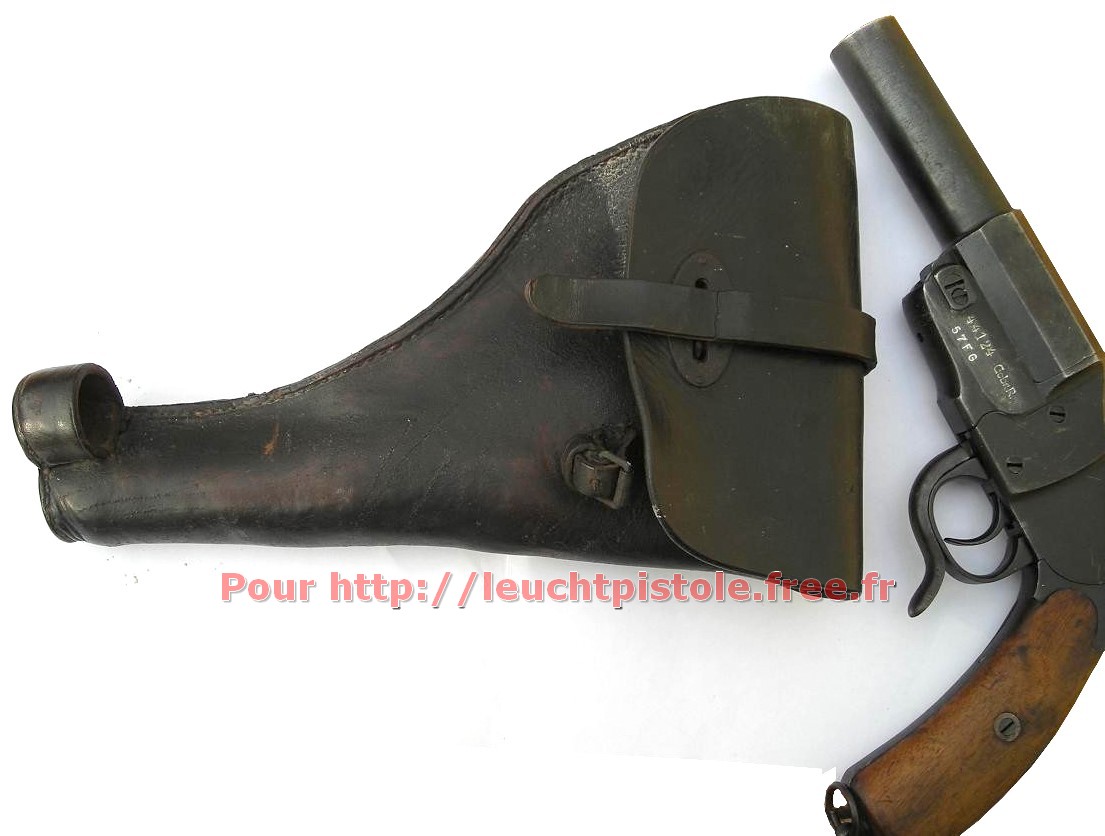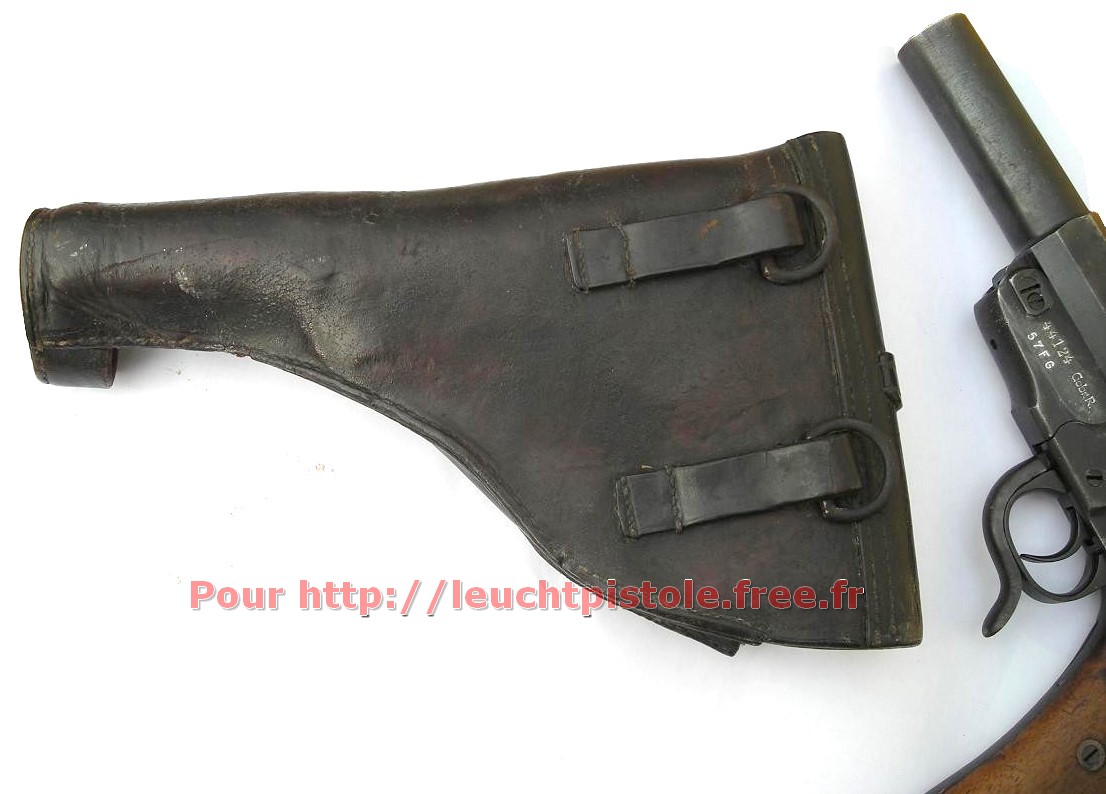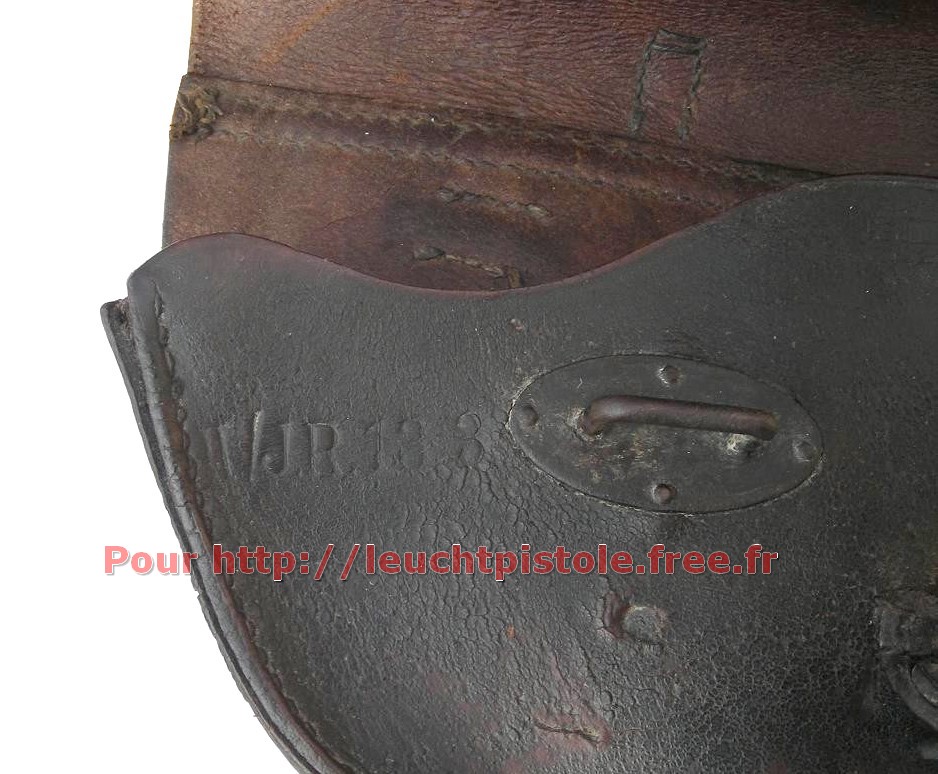Introduction.
Markings.
Zoom.
Comparison.
Straps.
WWII holster for a WWI flare gun.
Introduction
As the other hand guns, flare guns were wearing and
stored in holsters.
The holster used during the Second World War is based on
the one associated with the Mod. 26 flare gun.
Just is size has been reduced due to the diminution of
the barrel of it
At the beginning of the war, is was made of leather
(brown or black).
At its end, there is a location (cylinder piece in
leather) where the head of the cleaning rod can be stored and attach witch a
strap just under the cover of the holster.
On its back, two leather straps allow wearing it on a
classical belt or using a strap (even a bread bag strap).
As the other manufactured items and due to the duration
of war, the leather was replaced by a king of synthetic lather made of
compressed leather/wood/cardboard sawdust.
To prevent against water, these holsters were covered by
a synthetic varnish.
During the war, the way the cover was fixed to the holster
itself changed. Seams were progressively replaced by rivets.
Nevertheless, we can observe all the different
combinations:
Holster made of 100 % leather, compressed cardboard
made 100 % and mix of it (cover in cardboard and body of the holster in leather).
We notice that holster were identical what ever the model was (Mod. 34, Heer
and even LP 42).
Concerning that last model (LP 42), they were sometimes stored in pocket or in
empty gas cap pouches.
Last detail, during all the war, holsters were very often made with
a very good quality.
Markings
The different Manufacturers markings have been observed
on different places on flare gun holster.
In synthetic holster, the markings are usually on the
internal side of the cover.
On leather model, they can be observed on the back of
the holster itself.
Markings inside the holster (xx 1937 + WAamt and fuq 42 + WAamt):



Markings at the back of the
leather holster (between the two straps)
(Mainz 1937 + WAamt) :

Ink markings inside the
synthetic leather cover (ink and WAamt footprint):


The different leather manufacturers observed are the
following:
TO BE DEFINE
Manufacturer code, name, location, year, pictures
We would like to warn you concerning some post war flare gun holster (specially
NVA). In most cases, they do not have any strap for the cleaning rod and the
stamps used are usually too nice and fresh.
Some samples are described in that 'Fakes' on this web site.
Zoom
In that paragraph, we just would like to focus on some
details of flare guns holster:
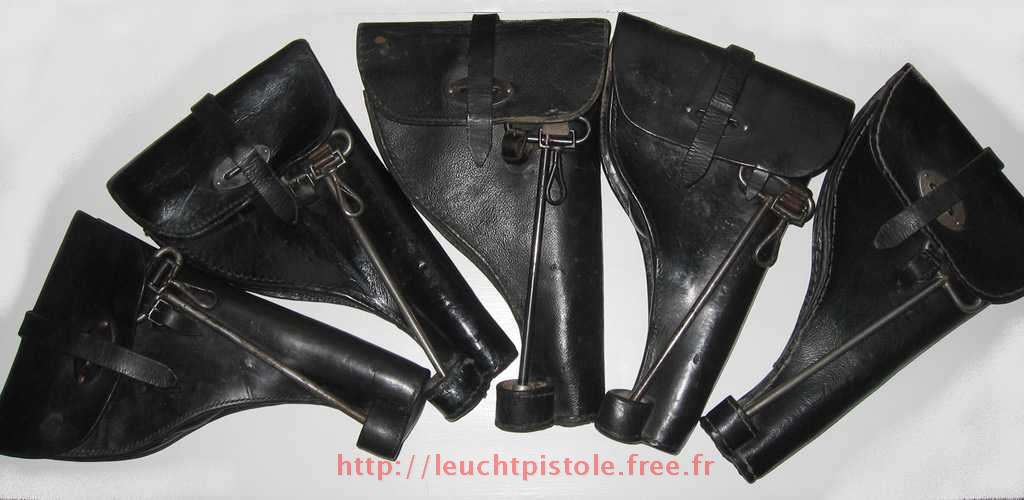
Here below, three different types of manufacturing
From left to right, 1937 dated holster made in leather,
ersatz leather for a 1940 dated holster and leather 1940 dated.


Notice, that even if ersatz leather has been used for
the holster in the middle, the way the cover is linked to the body is based on seams!!
On the next pictures, we can observe the way back straps
are designed.
Notice the way, in their folding, the rings are
integrated so the hooks of strap can be used.


At the end of the holster, a kind of cap is sewn. It can host the head
of the cleaning rod. Just under the cover, a leather strap is sewn too so the
handle can be fixed. More details are described in the topic dedicated to cleaning rod.
Holster
comparison (leather and ersatz model):
Here below is a pair of full leather holsters. They
have the same way of manufacturing.


Another leather holster with the cover fixed with rivets
(flat head)


To compare with two ersatz holsters:


On one of these holster, one cover is fixed with rivet
and the other one is sewn
Straps
Even if holster can be attached to the belt, for a
better comfort, soldiers preferred to use strap.
Two models were available. One made in leather and one
in canvas.
Here is an example of a canvas strap.



Web holster for the LP 42 model
Different hoslters for German flare guns have been made in leather or ersatz.
But
some web holsters have been encountered. It's important to notice
that only the LP42 flare gun model can fit this type of holster.
Here below
some pictures of it (this one belongs to 'Grubhy'). The
manufacturer code seen is 'cww' and the WaAmt is '136'.
Click the picture to see it in its original size.
Leather WWII holster for a WWI (Hebel model) flare gun
The here below pictures show the proof - if it was needed - that some WWI flare guns have been used during WWII.
The Hebel flare gun has its gun been shorten (to respect/apply the requirement of the 'Traité de Versailles').
The holster is a classic leather one with regiment markings..
(click pictures using your mouse to visualize them in their original format)
